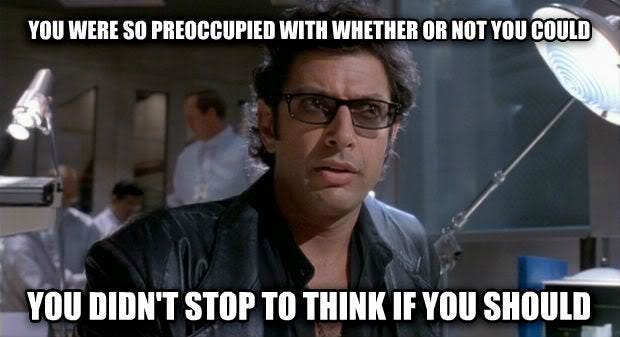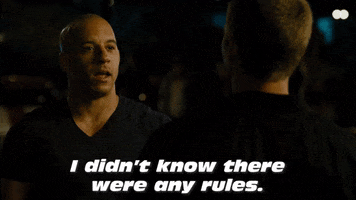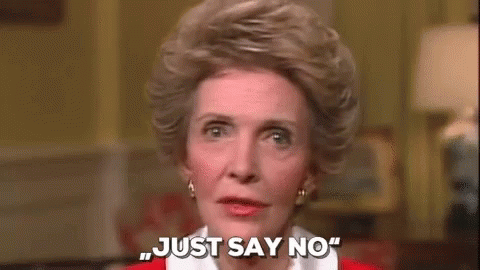Clean and Sober
Keep an open mind, not an open bar - be present and rethink drinking habits when traveling. This post covers ideas for mindful journeys where you can just say no and live in the moment.

I have to come clean about something, I do a lot of my writing in breweries on the weekends. It's an unconventional choice, I know, but there's something about sitting in the back of a brewery, surrounded by the brewing process, that sparks my creativity. As I delve into my research and writing, I indulge in the flavors of a smoked porter, an IPA, or a Czech pilsner. Sometimes, I'll have my earbuds in, immersing myself in music, while other times I'll simply soak in the atmosphere and chuckle at the amusing observations around me. Now, don't get me wrong, I take my responsibility seriously when it comes to alcohol consumption. Whether I'm at a brewery or at home, I always make sure to drink responsibly. I take my time, savoring each sip, and often balance it out with water to stay hydrated. It's a relaxing experience, and the taste of the beer, wine, or spirits adds to the enjoyment. However, like everyone else, I have my moments where I may go a little overboard. We've all had those nights with one too many drinks and the subsequent hangovers. It makes you question whether it's worth it to drink while traveling. But here's the thing, when you're traveling, there are no set rules. It's your own unique experience. And for some, a new trend called "sober traveling" is gaining popularity. It might just be the perfect way to cherish those memories forever, without the haze of alcohol.
I Have A Problem
On the classic sitcom Cheers, the character of Sam Malone was a former pitcher for the Boston Red Sox, and was also a recovering alcoholic and sex addict. One moment that always stood out for me was when Sam lost the bottle cap that would keep him sober, and it became a personal crisis for him. He pours the beer, and then proceeds to toss it to the side. This clip below illustrates this moment perfectly:
Sam Malone confronts his addiction from a clip from Cheers
This moment demonstrated the power that alcohol has over those who are addicted. Alcohol embodies the connection that humans yearn for. For those on the path of recovery from alcoholism, the journey is perpetual. It commences from day one and persists indefinitely. Even during your vacation, the significance of your recovery remains paramount. However, what if you're not dependent on alcohol and simply desire a vacation free from its consumption?

Breaking The Habit
Solo traveling affords you the freedom to be you, to do a trip the way you want to do it. There’s no rules, no set guidelines. Perhaps you're traveling with a friend who prefers to limit or abstain completely from alcohol. Maybe you're traveling with family and prefer to be in the moment. These scenarios present an excellent chance to experience the joys of sober travel. Whether you are in the process of recovery or simply new to the concept of being a "sober traveler," Jennifer Barger from National Geographic highlights the importance of substituting behaviors as a starting point:
When I first got sober, my rehab counselors and clinical research suggested using “substitution strategies”—trading potentially destructive behavior (drinking) for positive moves. “Much of early sobriety is about structure and creating new routines,” says Sarah Levy, a fellow sober writer and author of the new memoir Drinking Games. “You need to rewire your brain and break old habits.”
Perhaps you decide to sit at a bar to pass the time, or grab some lunch or dinner. You’re faced with all of those bottles of wine and spirits, and those beer taps. You’re now salivating over the choices. Why not substitute one of those with a ginger ale, or even a soda? There’s sparkling water, there’s club soda. On my nights where I choose not to consume alcohol, I often have zero sugar cranberry juice, or diet cranberry-pomengranate juice. There’s also “mocktails”, and many bars have them, where you can have the taste and feel of a cocktail without the alcohol. Bartenders won’t be hurt if you choose something non-alcoholic. In fact, they may be quite relieved that they won’t have to watch you as closely as they might with other patrons! It all starts with changing habits.

Never Gonna Give You Up
Perhaps you’re like me, and you don’t plan on quitting alcohol anytime soon. You only consume alcohol on the weekends, and will resist if you’re not feeling like it. Sober Traveling also has its benefits for drinkers, and non-drinkers. It’s not just with cost as drinks tend to get pricey, but with the overall experience, as detailed by Zoe Weiner writing in Byrdie:
Even for travelers who drink at home, these types of vacations have their appeal. “I do almost 99% of my vacations completely dry,” says Rachel Branchi, who recently spent three alcohol-free weeks traveling through Thailand on her honeymoon. “I get that being sober when you’re on a beach or exploring a new place with cool cocktail bars doesn’t sound the most appealing, but I’ve found that when you take drinking away from the situation, it enhances your experience. You rely on honest and thoughtful conversation, true relaxation and clarity, and overall, you realize you don’t need a beer or margarita to make for great memories.”
Engaging in conversations with strangers as a solo traveler, or even traveling with friends and family can be an enriching experience. It opens up the possibility of making new friends or creating memorable connections. So, why hinder this opportunity by being intoxicated? Instead, opt for a sober journey that allows you to fully embrace and recall every aspect of your trip, including the meaningful conversations you have along the way. If you're a female solo traveler, it is crucial to prioritize your safety, and traveling sober can greatly contribute to that. Moreover, it has been highlighted in the same article that sober traveling offers numerous health and well-being benefits:
Pooja Shah, a freelance writer in New York who started experimenting with sober travel last year after realizing that she was consuming far more alcohol on vacation than she did at home, has seen these benefits firsthand. “During a trip to the Maldives last fall, I decided not to drink—which was surprisingly easy thanks to the resort’s multiple mocktails and fresh juices—and saw that my skin felt fresher; had less inflammation, acne, and redness; and had a genuine overall glow that didn’t require makeup,” she says. On a recent dry weekend trip to Milan, Shah opted out of imbibing on delicious Italian wine and calls it “the best decision [she] could have made.” “I hate the feeling of ‘needing a vacation after a vacation,’ and I think by not drinking, it actually allows me to feel energized and less tired—I even had time to squeeze in workouts each morning because I wasn’t lethargic or hungover and I got to enjoy the city without feeling tired or tipsy,” she says.
The advantages of traveling sober are vast. With the significant rise in solo travel, particularly among women, it's clear why there is a growing trend towards sober travel.
![Bridesmaids [Full Movie] ★: Bridesmaids Movie Party Gif Bridesmaids [Full Movie] ★: Bridesmaids Movie Party Gif](https://substackcdn.com/image/fetch/w_1456,c_limit,f_auto,q_auto:good,fl_lossy/https%3A%2F%2Fsubstack-post-media.s3.amazonaws.com%2Fpublic%2Fimages%2Fbca44bc4-5ee9-43b5-ae18-0342159affcb_500x208.gif)
Nothing Else Matters
Solo traveling is an incredible opportunity for me to immerse myself in the city I'm exploring and indulge in activities that I can't typically do back home. My itinerary usually includes visits to museums, engaging in informative tours, and exploring the beauty of National Parks. While I do enjoy exploring local breweries, it's not a necessity for me and serves more as a way to fill any gaps in my schedule. Everyone's solo travel experience is unique, and it's important to find what works best for you. As a sober traveler, it's essential to have the strength to say no to consuming alcohol, just like saying no to indulging in a favorite food. Zac Spowart writing for Nomadic Addict beautifully highlights the importance of making choices that align with our personal preferences and values:
It sounds silly I know, but if you didn’t like a certain food, you’d probably not think twice about turning it down. Or, if you were allergic to oranges and people kept trying to get you to drink orange juice, you’d probably just leave, or tell them “no” a bunch of times and get annoyed.
Why can’t the response to alcohol be the same?
It really is as simple as looking at it that way. I don’t want it. I don’t like it. I don’t need it. Whatever the case may be, a simple no truly is good enough, and then stand by it. It’s fine if others want to drink but that doesn’t mean you have to. If someone is pushing that hard for you to drink, that says a lot more about their need for people to drink than your need to satisfy them.
It’s as simple as just saying NO. It is intertwined with the process of transforming our habits and embracing novel encounters and opportunities. Sharing your travel adventures with loved ones is crucial, as these unique moments are yours alone.

Key Takeaways
If you’re considering sober traveling, you’re not alone. In fact, according to a 2023 report in Expedia, 40% of travelers are planning on booking an alcohol-free trip. Traveling has the power to break down your inhibitions to the extent that you may find yourself indulging in heavy drinking without even realizing it. However, it's important to remember that when it comes to traveling, there are no set rules dictating what you should or shouldn't do during your journey. It's all about creating your own unique experience. Whether you're someone in recovery or simply looking to save money and fully immerse yourself in every aspect of your trip, opting for sober traveling can offer numerous advantages. It all begins with making a conscious effort to change your habits, and from there, everything else will naturally fall into place. During my research on this topic, I found myself incredibly inspired to embark on this journey as well. As for my own writing process, as much as I write at breweries, I also write at home after a long day of work, with a refreshing glass of zero sugar cranberry juice in hand. Cheers to that!



